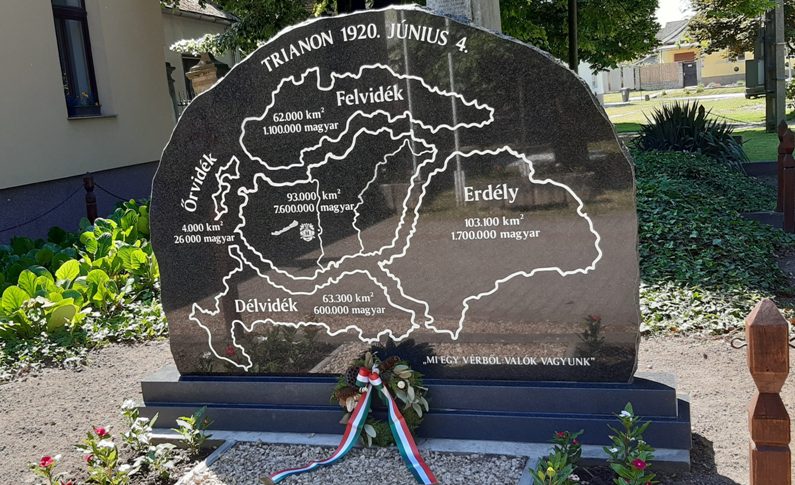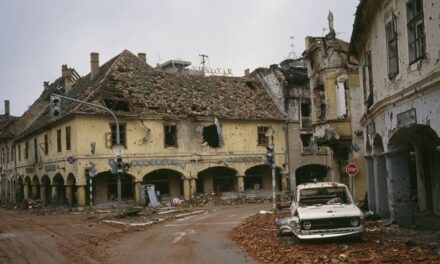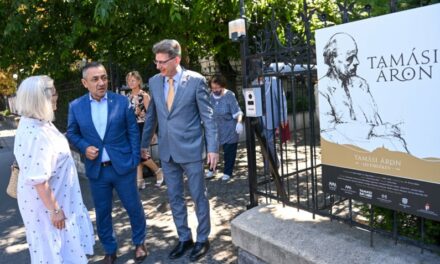"A nation that does not know its past does not understand its present, and cannot create its future!"
Europe needs Hungary... which has never let itself be defeated.
Details from the Three Trianons :
What are the three Trianons about? What are the Trianons who are deliberately destroying our nation?
The first, of course, was the peace decree following the Great War, the so-called Trianon Peace signed on June 4, 1920. This dealt such a fatal blow to Hungary that we have not recovered from even after a hundred years. The location is Paris.
We suffered the second On February 10, 1947, the Hungarian territories regained at the cost of unprecedented sacrifices were taken from us again by the stroke of a pen. the peace treaty is Paris.
The third Trianon could be partially avoided if Europe's deluded bureaucrats in Brussels and its voting citizens, whose minds have been clouded by mass media, did not make a fatal mistake. Important milestones in this are the polls that lead the fate of Europe to a dead end and seem almost "sick". Locations: Brussels, Strasbourg, Paris, Berlin.
If the root of the problems had to be named with a foreign word, it could be described with the concept of conformity. A particularly good example of this is the injustice of Trianon.
Everyone knows the saying: "Hungarian is the one who hurts in Trianon." And the majority of Hungarians deep down agree with this. It doesn't hurt the fourth and fifth Trianon generations anymore, they have already socialized in a different world. Honorable exceptions! If you have to do something for your country, if you have to make a statement about Trianon, for example, you prefer to remain silent or tell the opposite of the truth. This applies to those who have grown up on globalism's all-conquering phrases, who get their knowledge from half-truths on the Internet. This is pure conformity, this is trendy, this is cool. In the chaos, lies, half-truths, and a flood of false news gain the right to exist. It was like that before. It is enough to think about Trianon, how and Thomas Masaryk , the two Czech politicians, believed their blood-boiling lies with the decision-makers in Paris a hundred years ago Nothing new under the sun.
The whole truth is a bit more complicated. Because the politicians standing out in the open, in this case Benes and his colleagues, were "whispered" by the power elite standing in the background, driving them and paying them, what kind of policy to pursue. It is no different today. The
controlling power and will of the background power - which was classified in the category of conspiracy theories a few years ago - is becoming more and more open and more violent.
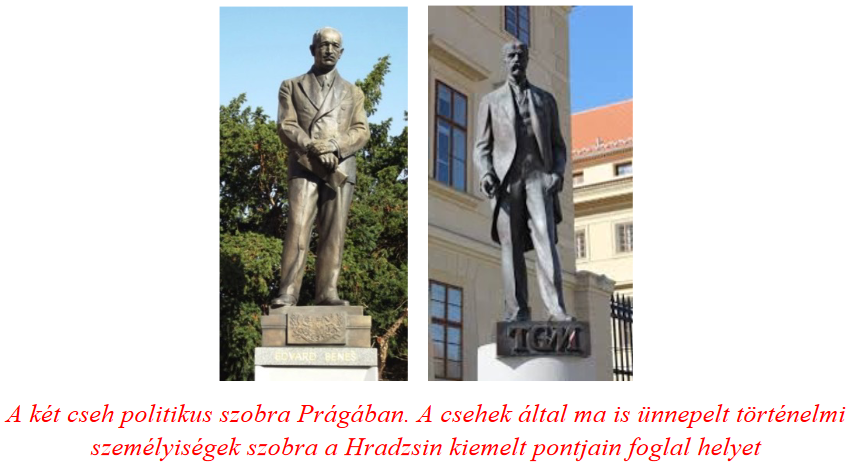
There is a widespread view that the Hungarians should be punished because they are a "low Mongol race", even their language and culture are different from all other languages and cultures in Europe. However, we Hungarians are already used to fighting conformity. The thousand-year-old struggle, the misleading and deception of the peoples continues in the first decades of the 21st century. The political leaders of some European countries provide plenty of examples of how they mislead the people of their own and other countries. We Hungarians are no exception, there are many in our ranks who turn
against our national interests. But we are the only people whose majority does not give up!
Today, more and more of us know that the real cause of the fratricidal war that broke out in Europe in 1914 can be traced back to the British-German power struggle that also included the plans of Pan-Slavism. In addition to the armed fighting in the trenches, the war was also taking place in the political background. It is true that the fierce verbal battle raged there only in the safe meeting rooms and coffee houses.
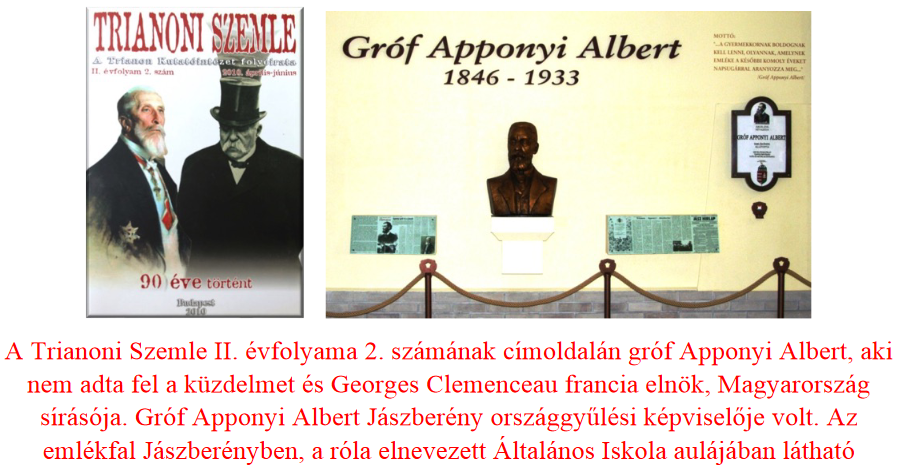
Evaluation of Trianon ten years after the peace decree
It is worth briefly reviewing the feelings, opinions and knowledge of the Hungarians who directly suffered the peace decree about Trianon. Think about it, they still lived within the borders of the Monarchy. A resident of Budapest, Pécs or Debrecen could go to Nagyvárad, Arad, Cluj, Marosvásárhely, Szabadka, Bratislava or Kassa, just like a Hungarian citizen today could go to Szeged, Győr or Miskolc. They were still part of the sufferings of their compatriots who were expelled from their homeland in historical Hungary. They saw and experienced the fate of the wagon dwellers, they felt the weight of unfathomably great losses on their skin.
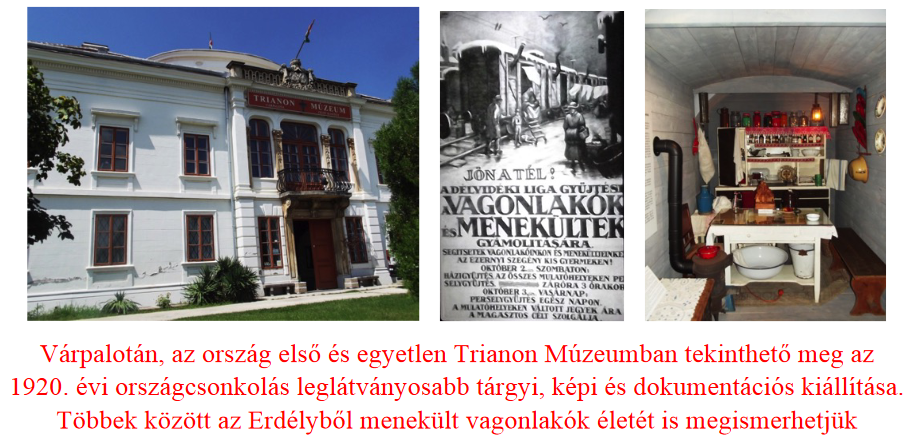
Today's generation, living four or five years later, feels none of this, or only a little. Not only the passage of time - which is the greatest healer of wounds - but the four decades of brainwashing by the socialist system played a decisive role in the development of thinking differently. Millions of Hungarian people lived their lives during the decades of socialism without ever visiting Transylvania, the Highlands, Transcarpathia, the Southern Region, or Őrvidék. And this is not their shame, their fault, since they went when they could - after 1990 - and wanted to make up for the backlog.
Therefore, we, today's natives, who already have more knowledge about the events, should not underestimate the works of the scribes who lived in the years immediately after Trianon.
The editor-in-chief of Pesti Hírlap, Ottó Légrády, on the occasion of the 50th anniversary of the founding of the newspaper in 1931, Justice for Hungary! has published a 180-page gift book entitled The fourth edition of the work, which is published with plenty of images and map appendices - considering that only a decade has passed since 1920 - the authors put down personal experiences, their own tragedies.
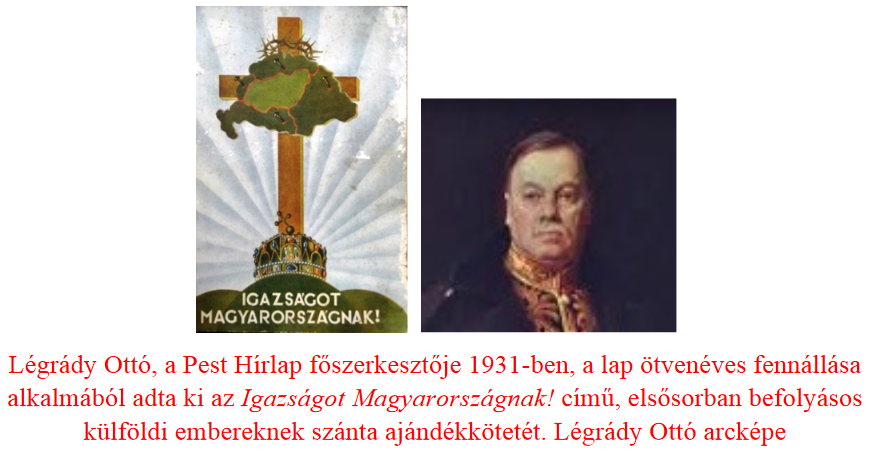
The winners – the Entente Great Powers and the successor states – ruthlessly implemented the Trianon Resolutions to the detriment of Hungary, while regularly breaking their own obligations. Many Hungarians expressed the idea of resistance: Can it stay like this? No! You can't stay! Hungary does not want to disturb the peace of Europe, but it demands justice. We demand Trianon's revision!
broken by the English Lord Rothermere It is to the Lord's credit that the English and partly the American public got to know the reality about Hungary. The peoples of Europe - perhaps with the exception of the Italians - had no idea about the Hungarian tragedy. And the population of other continents - including America - almost didn't even know that such a completely plundered, ruined country existed in the middle of Europe, which is so proud of its education and democracy.
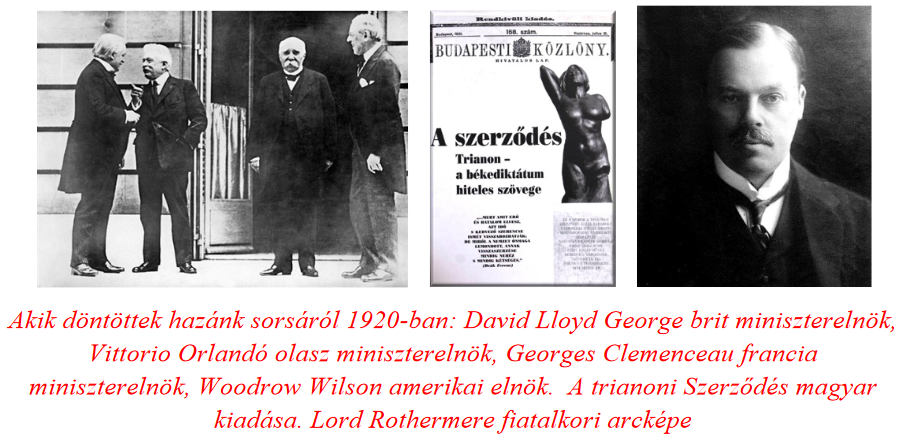
The original causes of the Great War
The Western European generations living in the first decades of the 20th century lived their lives with the historical awareness that the transfer of Alsace-Lorraine to Germany and the expanding Pan-Slavism would lead to an unavoidable, bloody war. In the first decades of the 20th century, these news preoccupied citizens interested in politics in Europe.
However, the outbreak of the First World War had even deeper, geopolitical reasons. Preparations began already in the second half of the 19th century, but the script was "sharpened" in the first years of the 20th century. Who were the authors of the script? Those who have huge amounts of money are primarily leaders of American business circles. Those whose descendants still control the political events of the world today. Those who have been the beneficiaries of colonial systems for centuries.
The first "global" event of the 20th century was the Russo-Japanese War of 1904-1905. Japan entered into an alliance with Great Britain as early as 1902. London used the agreement to persuade the distant Asian country to attack Russia. (Are you familiar with the "Russian policy" of the middle of the 20th century and the beginning of the 21st century?) On February 8, 1904, Japanese warships attacked the Russians expanding to the south in Port Arthur harbor without a declaration of war. Perhaps this was the first military-political event that opened the door to breaking laws, disregarding contracts, and concluding secret pacts. (Just consider that in 1918-1920, the contracting parties concerned - Hungary is a good example of this - were not even invited to the negotiations, only the facts were presented to them and they were made to sign them. Previously, such events could only occur occasionally.)
The British Empire, France and the United States, which is increasingly paying attention to Europe, were already afraid of Germany and Russia joining forces at the beginning of the 20th century. (It is necessary to recall the Molotov-Ribbentrop - if you like - Hitler-Stalin pact concluded in 1939, and the Russian-Ukrainian war that broke out in 2022. No explanation is needed to recognize the connections!) Chancellor Bismarck - who in 1871 had the lion's share in the creation of a unified Germany - he declared: "You have to be good with the Russians!" The union of the two European countries - in terms of their military strength, geographical extent and raw material base - would have meant an invincible alliance. The leaders of the Western powers, especially the Anglo-Saxon ones, were well aware of this.
II. Wilhelm (1888-1918) wanted to continue Bismarck's policy and sought to form an alliance with the Russians. However, the elite, primarily Anglo-Saxon, who controlled the big politics, set a trap for both the Germans and the Russians. The trap was provided by the situation of the then crumbling Ottoman Empire. The Germans decided to build the Berlin-Baghdad railway line in the 1880s. The goal of the huge investment financed by Berlin was economic and political expansion towards the east. During these years, the importance of crude oil surpassed that of all other energy sources, and oil became a vital issue for German industry as well. However, the construction of the railway hurt both Russian and English interests. The German railway construction plan therefore offered England a good opportunity to prevent the German-Russian rapprochement.
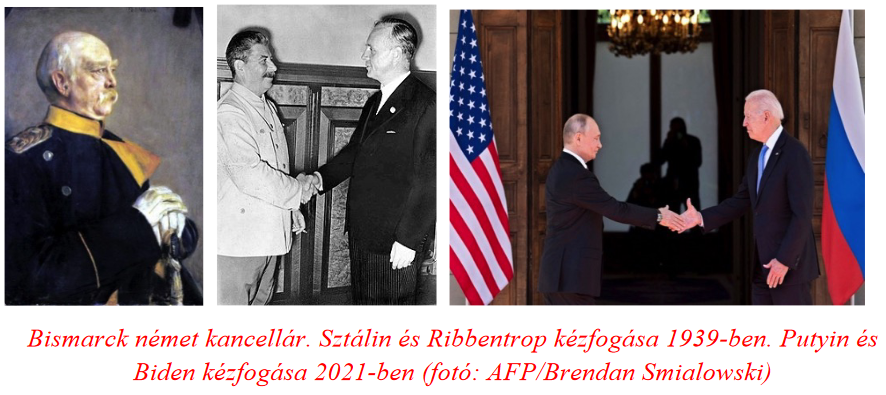
The other factor causing tension - which we have touched on before - was the spread of Pan-Slavism. Behind the disruptive activity of the Czechs were the Western powers, led by the British Empire. The idea of the Pan-Slavic (Russophile) movement originated in the Czech Republic. The Czech politicians who destroyed the Austro-Hungarian Monarchy and Hungary (Benes and Masaryk) also did part of the work of opposing the Russians and the Germans in return for British and French support. Although the Czechs announced the idea of Pan-Slavism, they imagined it under the leadership of Russia.
However, let's go back to the history of the disintegrating Ottoman Empire. When the Russians wanted to spread a religious, cultural, national and, of course, military protective wing over the Balkans, they set their sights on an important European area of the former Turkish empire. Among the Balkan states, Serbia and Montenegro played a prominent role. Like the Russians, they also followed the Orthodox religion, wrote in Cyrillic letters, were a Slavic people, and accepted and even demanded the Tsar's military assistance. The Bulgarians played a similar role, since they were Slavs, they also practiced the Orthodox religion, and their writing and culture were the same as those of the Russians. The Romanians, although they did not belong to the Slavic peoples and in the meantime switched to the Latin alphabet, practiced the Orthodox religion. The Greeks also followed the Orthodox religion, and their geographical location played a key role in their political involvement.
Although the Croats and Slovenes are Roman Catholics and use the Latin script, they are Slavic peoples. Bosnia and Herzegovina is a country of mixed religion and nationality. There are two things to note about the First World War. One is that the Austro-Hungarian Monarchy annexed Bosnia in 1908, driving a wedge between the peoples of the Balkans. Gavrilo Princip's fatal shot was fired in his capital, Sarajevo
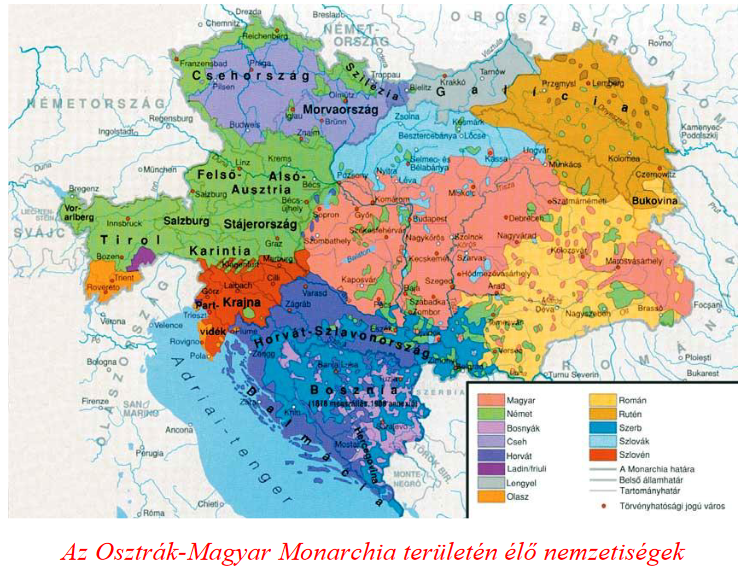
In order to better understand the political activity that spanned Europe, it is necessary to know that their rulers were connected by strong kinship ties. VII. British King Eduard II. Wilhelm I, II. Nicholas II of Russia and II. Vilmos were second cousins. All of them could consider their great predecessor, Queen Victoria, as their spiritual mother. Eduard was the empress's first-born son.
The rapid strengthening of Germany also contributed to the establishment of the "entente cordiale" between England and France in 1904. And in 1907, the two Western powers entered into an alliance with Russia. In this way, the tsarist great power also increased the military strength of the Entente countries. As a result of the alliances that lasted from 1879 to 1907, the two federal systems were created: the central powers and the Entente. (It should be noted that in 1914 the Ottoman Empire and then in 1915 Bulgaria also joined the Central Powers. Japan joined the Entente in 1914, Italy in 1915, Romania in 1916, and in 1917 the United States.)
Montenegro attacked Turkey in 1912. This was the First Balkan War. The allied troops gained significant territory, but they could not enjoy it for long, because in 1913 the Second Balkan War broke out. The former allies, Serbia, Greece, and Montenegro, along with Romania, attacked Bulgaria, depriving the Balkan country of its new territories acquired a few months ago. Russian diplomat Hartwig saw the Balkan wars as just the beginning. He announced that, after Turkey, Europe's "second sick man", the Austro-Hungarian Monarchy, should also be deprived of its power and territories. France was also feverishly preparing for the great war. This was proven, for example, by the fact that in 1913, Paris introduced a three-year military service period. Now all that was missing was a spark, which was provided by the assassination in Sarajevo supported by the Serbs and the Russians. Ferenc Ferdinand and his wife on June 28, 1914 in Sarajevo The provocation was successful. Exactly one month to the day, on July 28, 1914, the Monarchy declared war on Serbia, which marked the beginning of the First World War. (Gavrilo Principe is revered as a hero by Serbs and Bosniaks. This is indicated by the fact that on June 28, 2014, a full-length statue of the terrorist was unveiled in Sarajevo, and on June 28, 2015, a bust of him was unveiled in Belgrade. a statue of the assassin, which was uncovered by Serbian film director Emil Kusturica
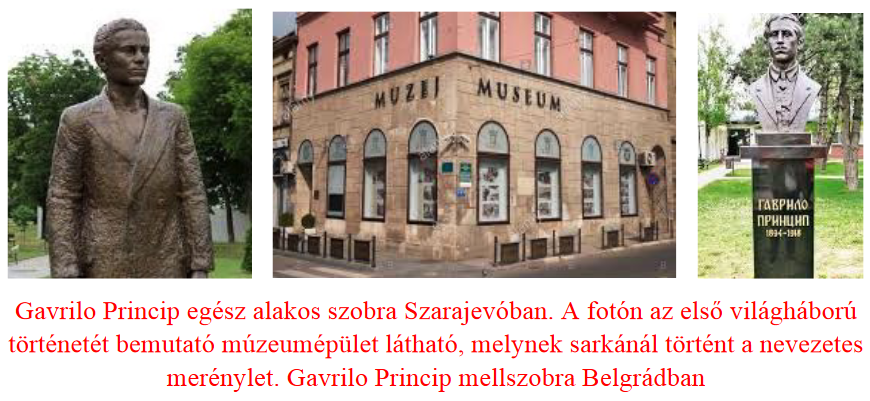
They are responsible for the war
The Entente Powers blamed the Central Powers for the outbreak of the Great War. But the clumsiness of German and Austro-Hungarian foreign policy also contributed to the fact that the Entente was able to shift responsibility for the war to the central powers. The leaders of Berlin and Vienna were also unable to take advantage of the fact that Germany and the Austro-Hungarian Monarchy fought a mostly defensive war during the four years. Even if Germany and Austria wanted war, Hungary would not. Prime Minister István Gróf Tisza consistently refused to go to war in the negotiations before the declaration of war. The Hungarian Prime Minister, one of Europe's biggest politicians at the time, foresaw that Hungary would be the number one casualty of the war. He saw that the purpose of the entente was to divide the territory of the Monarchy. The countries that surround our country today applied for one area of Hungary.
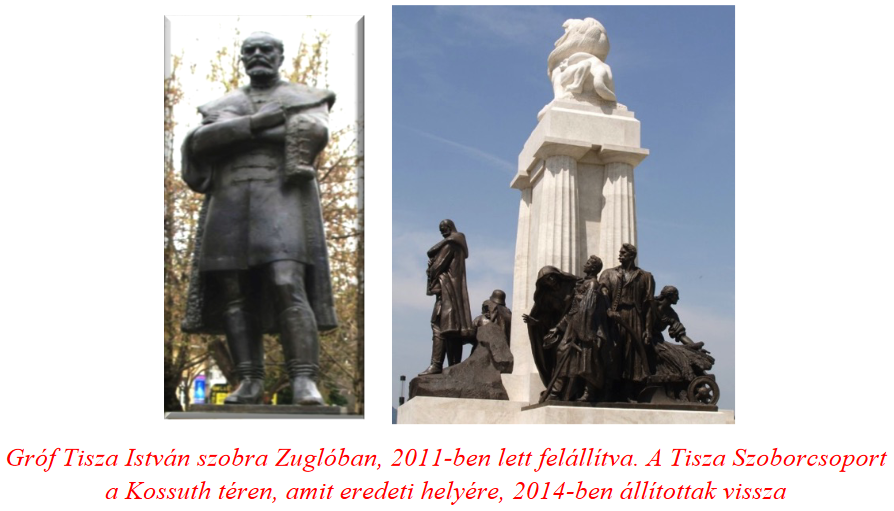
In addition to Serbia, Herzegovina and Bosnia, the Russian envoy also made Romania interested in the mutilation of Hungary's territory. Tardieau, later French Prime Minister (who was known to be a paid man of the business circles controlling Western financial affairs), when he gave a lecture in Bucharest, talked about "Transylvania being the Alsace-Lorraine of Romania".
The baseless attacks, lies, and slander against Count István Tisza We know that István Tisza was the only politician in the Crown Council of the Monarchy who opposed the war and the declaration of war to be sent to Serbia. In the end, however, the will of the majority prevailed. The Austrian and Czech leaders without exception voted for war.
Take Jonescu, who built their politics on lies, dared even further than their previously untrue statements. They claimed that: "Tisza and the Hungarian nobles forced the war" . In his unbridled hatred, Take Jonescu even added that "Ferdinánd Ferenc was killed by István Tisza, just to start the world war". (It doesn't hurt to know that Ferenc Ferdinand visited Sinaia, the residence of the Romanian king, in the time before Sarajevo, where he offered the Romanians the crown of St. Stephen.)
From the beginning, István Tisza promoted the policy of peace. Every day that the killing continues, he insisted, is nothing more than an open attack on humanity. Tisza didn't just say it, she also did it to end the war. Already in August 1914, he asked István Burián, the joint foreign minister of the Monarchy, to offer peace to the Russians and the French. Even then, the central powers were determined to win.
In 1915, Tisza herself went to Berlin to convince II.
Emperor William, begin peace negotiations. However, he did not achieve much success with the presumptuous Germans. Nevertheless, in 1916, Tisza personally visited the German leadership again, asking them not to start the planned submarine war, because by doing so they risked the intervention of the United States. He was voted down again, but within a short time he confirmed again that it would have been better if they had listened to him.

Hungarian soldiers fought on four fronts during the four years of the war.
The first battlefield was in Serbia, when the Monarchy declared war on the Serbs because of the Sarajevo murder. The planned rapid invasion of the country failed because the Balkan people stubbornly resisted the Austro-Hungarian forces. However, the successful Serbian resistance also included the opening of the Russian front, where more and more Austrian and Hungarian divisions had to be transferred from the Serbian positions. The most serious battles took place on the Galician front, now part of Poland, where they had to face the mighty Russian army. In the battles in the eastern Carpathian region, the Germans also deployed increasingly large military forces. Meanwhile, on the Serbian front, the war ended in 1915. The third front was formed on the Romanian battlefield in August 1916. Its antecedent was the secret Treaty of Bucharest, according to which the Entente promised significant territories to the Romanians if they launched an attack on Hungary. Mackensen who came to their aid .
The operations ended in December 1916, with the capture of Bucharest. The mentioned three fronts were formed outside the borders of historical Hungary, except for the unexpected Romanian incursion into the territory of Transylvania. achieved clear military successes on all three battlefields
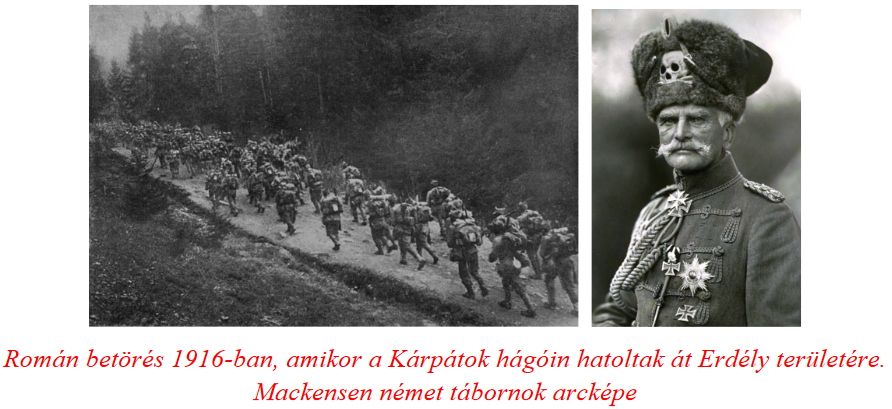
The fourth front developed in 1915 on the Italian-Austrian border, where the bloodiest battles took place for the next three years, claiming the most casualties.
(Italy was originally an ally of Berlin and Vienna, but made a U-turn in the first half of the war when it switched to the side of the Entente. In the days after the assassination in Sarajevo, the Italian Chief of General Staff began to develop operations against France. At the same time, however, in early August 1914, the Italians In the battles near the Piave and the Isonzó, Between June 1915 and September 1917, the Italians tried eleven times to break through the Austrian and Hungarian front at the Isonzó River, without success. In the twelfth battle of Isonzo, the Austro-Hungarian troops finally succeeded in taking the Italian front at Caporetto. Despite the great victory, the trying terrain of the Alps wore down the armies of the Central Powers.
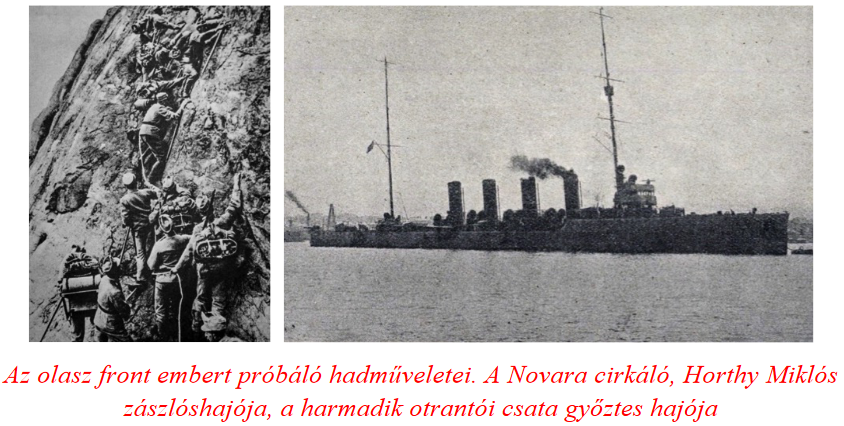
Over the years, around 550,000 Austrian, Hungarian and German soldiers fell on the murderous Italian fronts. On the part of the Italians, the sources speak of 650,000 heroic dead and nearly a million wounded.
The collapse of the central powers
After initial successes, the first major German offensive, the attack on France, failed.
September 5-12, 1914. In the Battle of the Marne between In the winter of 1914-1915, Austrian and Hungarian troops suffered significant losses in Galicia during repeated Russian attacks. However, in April-May 1915, the tide turned. The Central Powers won a great victory at Gorlice, when they beat back the tsarist army to the line of the Carpathians and the San River . As a result, huge Russian territories came into the possession of the German-Hungarian-Austrian armies. The battle of Limanova at the end of 1914, when the Hungarian hussars stopped the "Russian steamroller", should be highlighted.


The changing fortunes of war sometimes favored the Entente and sometimes the central powers. A decisive turning point occurred in 1917, when the United States entered the war. Since then, the balance of power has changed. On one side, the twenty-seven Entente countries with a population of 1,400 million, capable of fielding 46 million soldiers, were opposed to the central powers, fielding 22 million soldiers, with a population of only 159 million. In addition, almost all the resources of the entire world were open to the Entente, while the opposing camp could only rely on its own, shrinking base of people and raw materials. The Great War might have ended earlier if Russia, the eastern superpower of the Entente, had not collapsed and withdrawn from the war. Germany played a significant role in the elimination of Russia. Lenin , who lived in Western Europe - on the island of Capri and then in Zurich - was secretly smuggled into Tsarist Russia by the Germans, is no longer a historical taboo, where he was already condemned as a dangerous subversive. His mission and task was to incite Russia, overthrow the tsarist regime, and thus the Eastern Front would have ceased. It is no coincidence that an English politician wrote about the Germans who supported Lenin financially: "They used the most terrible
weapon possible against Russia. Lenin was transported to Russia in a sealed wagon like an epidemic bacillus." For the sake of historical fidelity, we add that two women also traveled with Vladimir Ilyich in that railway car that was sealed in the spring of 1917. Nágya , his wife, and Inessza , his lover. This is how the three of them lived before the trip home, in the train car and later in Russia, within the walls of the Kremlin. The plan worked. Lenin succeeded in inciting the extremely poor, starving and ignorant Russian urban population. He sparked the revolution that eventually led to the fall of the tsarist regime. The ruthless Bolsheviks, who came to power with false slogans, fraud, and violence, organized regular genocide among their own people. In particular, the peasantry and the intelligentsia suffered a lot. Among others, they executed the entire tsarist family. Not sparing women and children, and of course II. Neither did Czar Nicholas. The plan succeeded. Russia, which came under the control of the Communists, withdrew from the war.
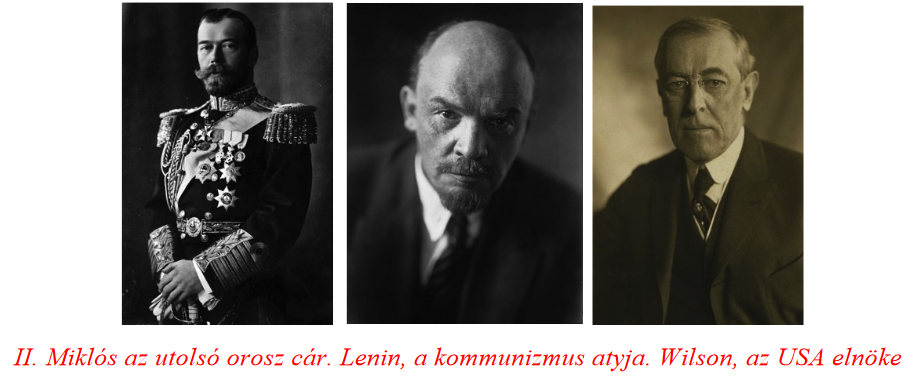 The Great War ended in 1918, but that was when the formation of the two world systems, which had been at loggerheads for decades, began. On the one hand, Wilson's Americanization, on the other, the Leninist-Stalinist Soviet system. Lenin or Wilson? The question was raised in many countries. In the first act of the drama (between 1918-1945), the Western countries of Europe took over the American system. In the second phase (between 1945 and 1990), the Eastern states of Europe lived under the communist system. In the third phase (between 1990-2022), the Central and Eastern European countries will also adopt the American system, which, however, has already lost its original values by these years. However, after the Great War, the failures of the American model appeared one after another. These included Horthy's Hungary, Mussolini's Italy, Pilsudski's Poland, Rivera's Spain, and then Hitler's Germany. Only Germany could be called a wild drive. The others just wanted to build the new world on their national traditions. However, the two were not compatible in all cases.
The Great War ended in 1918, but that was when the formation of the two world systems, which had been at loggerheads for decades, began. On the one hand, Wilson's Americanization, on the other, the Leninist-Stalinist Soviet system. Lenin or Wilson? The question was raised in many countries. In the first act of the drama (between 1918-1945), the Western countries of Europe took over the American system. In the second phase (between 1945 and 1990), the Eastern states of Europe lived under the communist system. In the third phase (between 1990-2022), the Central and Eastern European countries will also adopt the American system, which, however, has already lost its original values by these years. However, after the Great War, the failures of the American model appeared one after another. These included Horthy's Hungary, Mussolini's Italy, Pilsudski's Poland, Rivera's Spain, and then Hitler's Germany. Only Germany could be called a wild drive. The others just wanted to build the new world on their national traditions. However, the two were not compatible in all cases.
Although the Western powers created the League of Nations (League of Nations) on June 28, 1919 to ensure "eternal peace", it was unable to deal with the serious consequences of the First World War. The "putty society" preached peace, but resulted in the complete failure of pacifism. The League of Nations practically ceased its activities in 1939, but it was dissolved only in 1946, when the United Nations was created. The organization operating from war to war is also evidenced by the bad peace of the victors, the economic bankruptcy, and the general dissatisfaction of the European peoples.
President Wilson and the right to self-determination
On January 8, 1918, the American president published his famous 14 points, which, according to the Entente, contained the conditions for a just peace. Point 10 proved to be fatal for Hungary, which formulated the so-called right of self-determination: "The peoples of Austria-Hungary, whose place we want to protect and secure among the nations, must be enabled for the very first time to develop independently."
Woodrow Wilson was a man of contradictions in his person, politics, and world view. It was during his presidency that America's quest for total power began, leading people on continents near and far to believe that the United States represented their interests. A good example of American propaganda is the Lusitania case in 1917. It is now common knowledge that the "passenger ship" sunk by the Germans set off for Europe with the aim of openly provoking Germany. After all, despite international conventions, the Lusitania also transported weapons. Its sinking - an unadulterated casus belli - gave the United States the opportunity to enter the war instead of Russia on the side of the Entente on April 6, 1917. The genocide continued.
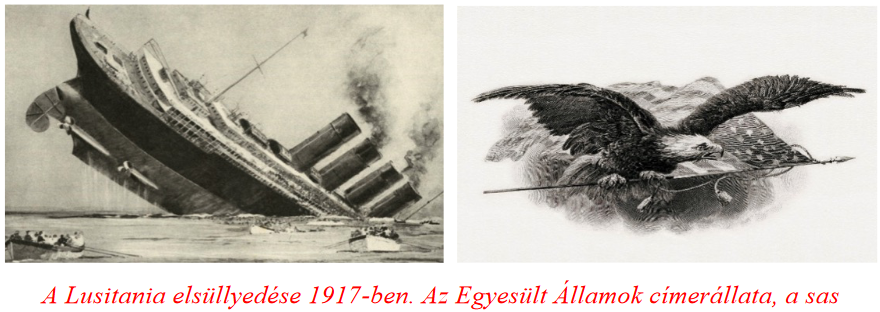
America introduced the "dictatorship of democracy" after the First World War, which people in many parts of the world could not accept. Just think of the Trianon decision, which was one of the consequences of this Wilsonian policy. (One hundred years later, we see where the rich and freedom-promoting, and therefore attractive, American dream has led. A Hitler's Germany, a Stalin's Soviet Union emerged. And today there is a China, a conquering Islamic migration, an African, a South American and an Asian migration, and what is most dangerous for them is a Russian-Ukrainian war, all in the name of democracy.
Hungary 1918-1920
However, Hungarian good faith and trust in the other side - even if it was the enemy in war - paid off. Mihály Károlyi, Béla Linder and the adventurer-revolutionaries they unleashed on our country deprived the country of even the most basic possibility of defense. Károlyi was more afraid of the soldiers returning home than of the enemy lining up at the borders of the country. His political role as a loser is not mitigated by the fact that he still relied on the help of the Entente at that time. The reason why he put his career as country leader on this bad page Károlyi's statement at the end of 1918: "We have one principle, Wilson, Wilson and a third time Wilson."
It is not difficult to see the parallels between Károlyi, who served the interests of the West and accepted its arguments a hundred years ago, and today's group of politicians who support Brussels politics.
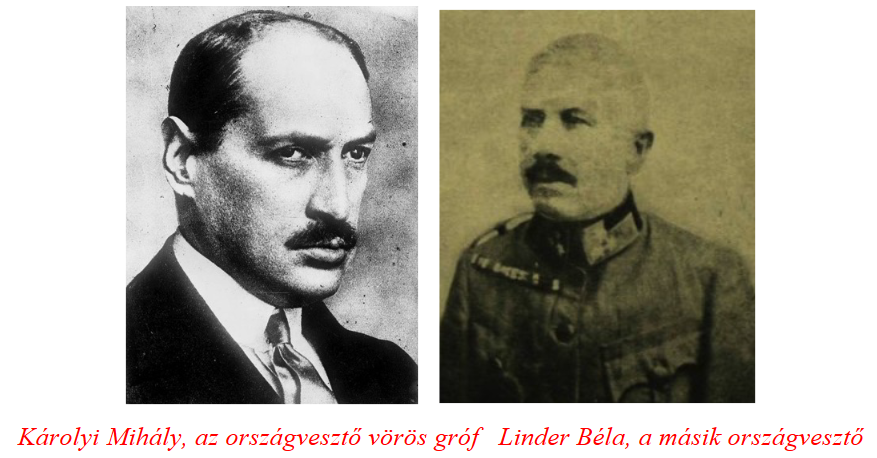
We now know that it was not Wilson who should have been trusted, but the defense. The Hungarian soldiers, with guns in their hands, under the guidance of politicians and their officers who had the fate of the homeland in mind, could have driven out the - fundamentally cowardly - Czech and Romanian troops invading the country's territory, and they would not have backed down from the Serbs. Proof of this is the centuries-long struggle against the Serbs, for example, before the 20th century. Among others Ferenc Julier , the chief of staff of the Red Army of the Soviet Republic, who was a military writer in the Horthy regime, wrote about the missed defense: "If the revolutionary government does not disperse the defenders of Doberdó, but sends them to the borders under the command of their old generals, the enemy will not be anywhere on them can come in."
The Hungarian nation was disillusioned from its childish credulity by the successive violations of treaties by the "self-determining" successor states and the Western powers that supported them. This is why Count István Tisza had to die. Because his enemies - and now we are thinking primarily of internal enemies - knew very well that Tisza would have been able to mobilize the Hungarian soldiers returning home from the front, who were still armed. This is one of the reasons why Count István Tisza was murdered in a premeditated and disgraceful manner. Forces came to power that brought the country to ruin. When the Hungarians who wanted to save their country realized that they had been tricked, it was already too late.
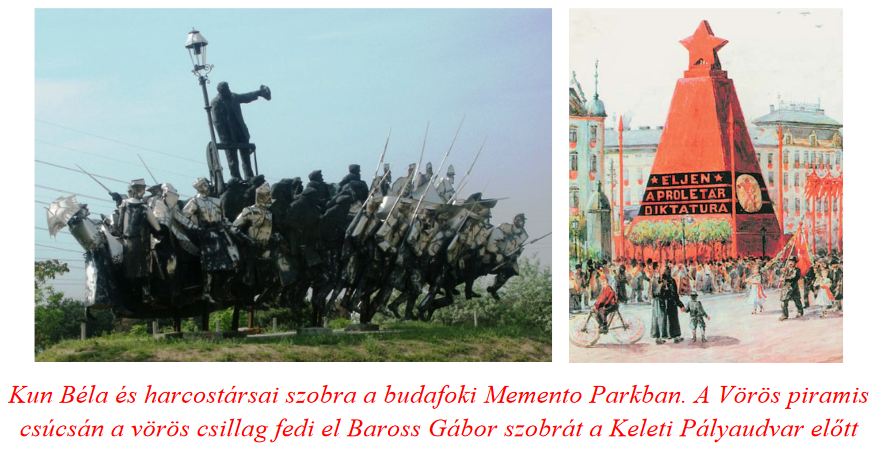
The country-losing activities of Mihály Károlyi and his "fellow warriors" were not enough, after that they unleashed the plague of the Council Republic on Hungary. However, this could only be achieved if the social democrats in our country entered into an alliance with the communists, who in themselves represent an insignificant force.
However, what was the culmination of the series of disgraces and injustices was that Austria, which also lost in the war, also received territory from the body of ancient Hungary. (For this, of course, the help of the Entente powers was needed. It was necessary to create a "neutral zone" between the West and the mutilated Hungary, if the Czech-Serbian corridor could no longer be created.)
For a hundred years, there has been a debate among historians, politicians, other intellectuals, and ordinary people keenly interested in the Trianon events, about whether the fate of Hungary could have been more favorable in 1918, at the end of the war? The facts and ever-increasing data lead to the conclusion that it is. Mihály Károlyi - and Béla Kun - insist that what happened was a historical necessity. They keep saying that Trianon's wounds don't need to be cut open!
Just think that if the armed Hungarian divisions, which in 1918 were without exception outside the Hungarian borders, were to be deployed, the drawing of the border lines would look different today. After all, the Székely Division, the Ragged Guards, the Balassagyarmati and other border civilians and soldiers were able to put up effective resistance.
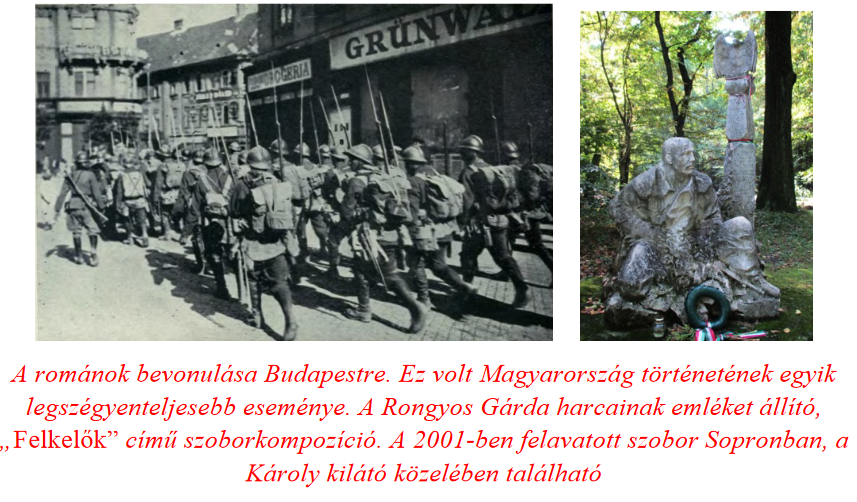
From Russian bayonets to Wilson points
Russia fell out of the Entente great powers, so the control of Pan-Slavism also slipped out of her hands. It was then that the leaders of the Slavic ring became the anointed fighters for the liberation and self-determination of the Slavic peoples. However, the nationalists were painfully wary of using the most basic requirement of self-determination, the institution of the referendum, anywhere. (This was possible in one place, namely in Sopron and its surroundings. The result is known. Thanks to this referendum, Sopron and the surrounding villages still belong to Hungary.)
It should be known that in 1923, riots and protests broke out in St. Petersburg, bordering Austria - and in nine other villages - in all of which the local residents also decided in favor of the Hungarians.
With this, Szentpéterfa earned the title of "the most loyal Hungarian village". We know that Sopron is the "most loyal city" and Balassagyarmat is the "bravest city". Perhaps fewer people know that a small guard settlement has earned the title of "bravest village". the Serb-Croatian-Slovene troops who were illegally occupying the neighboring village, Szomoróc After long negotiations, Szomoróc also came to Hungary on February 9, 1922. The two settlements were finally united during the Second World War in 1943 under the name Kercaszomor. In the border settlements - wherever possible - the Hungarians accepted the Trianon decision in this way. They could not accept the injustice.

People's assemblies without people's representation
The Slovakian, Serbian and Romanian "people's assemblies" were only intended to replace the referendum, which none of the nationalities dared to undertake. It should be noted that in all of Europe, only the Hungarians and the Germans initiated referendums, and they usually ended successfully for them.
The first people's assembly was organized by the Slovaks under the control of the Czechs.
This took place on October 30, 1918 in Turócszentmárton in the highlands. The composition of those who participated in the gathering was far from representative of the composition of the population of the highlands. Out of the 107 so-called "representatives", 58 "delegates" were recruited in Turócszentmárton, which has about four thousand people. The other 49 delegates were made up of Slovak leaders traveling from here and there to the People's Assembly. It is easy to see that the 1,702,000 Slovak and 1,874,000 non-Slovak population of the separated highland area was not represented in Turócszentmárton. At the same time, a people's meeting was also held in Kassa, where they declared about joining Hungary. The leaders of the Entente did not even mention this People's Assembly - which legally, in terms of representation, was in no way inferior to the Slovak Assembly - during the decisions. The double standard - in today's terms - was already evident at this time and in such cases.
The second People's Assembly was convened by the Serbs from Southern Region in Novi Sad. One of the flaws of the assembly organized on November 25, 1918 was that the political demonstration was held in the shadow of the bayonets of the Serbian soldiers. The other disqualifying reason, due to which the decision could not be valid, can be traced back to the complete lack of representation. 384,000 Serbs and 1,114,000 non-Serbs lived in Bácská and Bánát. The non-Serb population - a significant part of which was Hungarian - was represented by a single delegate. Of the 754 delegates of the National Assembly, 578 were Serbs, 84 Bunyevas, 62 Slovaks, 21 Ruthenians, 6 Germans, 2 Croats and 1 Hungarian.
The Romanians organized
the third national assembly Only 1,228 delegates took part in this also irregular Romanian meeting, which largely ignored Wilson's points. Greek Catholic bishop Juliu Hossu (his name perhaps refers to his Hungarian ancestors named Hosszú) read the decision. According to this, Transylvania, Bánság, Partium and Máramaros are united with the Kingdom of Romania. (The date of the big event is today Romania's national holiday, which even after a hundred years causes anger and contradictions in the peoples of Transylvania.) This gathering was not legal either. Apart from the Romanian, no representative of any nation was invited to the National Assembly. The arbitrators did not even mention the meeting in Cluj-Napoca held at the same time - which voted to remain in the bonds of the Hungarian state - during the peace negotiations.
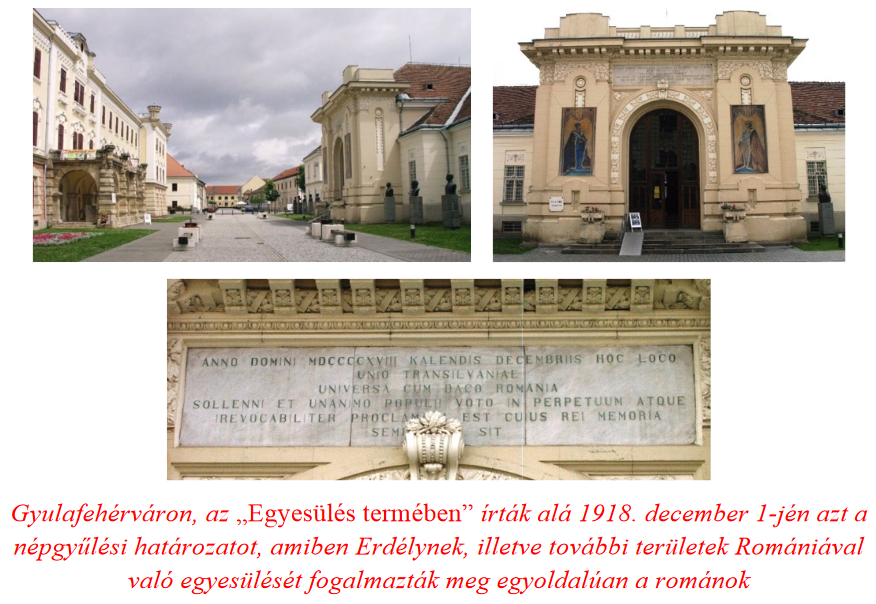
The Gyulafehérvár assembly declared: "Based on the basic principles of the formation of the new Romanian State, the National Assembly declares the following: Complete national freedom for all people living together. It provides education, public administration and judgment for each nation in its own language by persons belonging to that nation, and each nation will receive the right of representation in the legislative body and government bodies in proportion to the number of inhabitants. In comparison , in 2018, the year of the centenary, the Romanian authorities sentenced two young men from Székely to five years of rigorous imprisonment. Simply because they wanted to exercise their nationality rights. That's how far Romanian democracy has run in a hundred years. ( István Beke and Zoltán Szőcs were sentenced to five years in prison on charges of terrorism. They committed "terror" by displaying the Székely flag.)
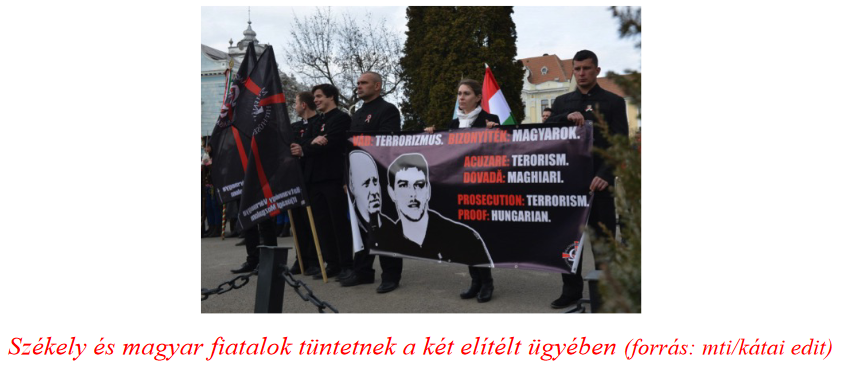
At the beginning of the 21st century, the "truthful" and infinitely democratic European Parliament shamefully condemns Hungary again, because it is the only country on the continent that dares to raise its voice against open attacks on Christianity, European culture, our traditions, and our economy. They did not have time for the case of the two young men from Székely. We are also in the way of the successors of the Trianon decision-makers, because the historical research that has determined the Finno-Ugric "kinship", the discovery of the majority of the Hungarian people, and the revival of the Scythian origin, which has been lied to for a century and a half, has a frightening effect on the racist-conscious "developed West". Rethinking these and similar injustices, re-discussing the carefully concealed historical events is necessary because even after a hundred years, at the beginning of the 21st century, we have not forgotten Trianon's crime. Not us Hungarians!
Trianon's crime, the disintegration of the thousand-year-old Kingdom of Hungary
Taking into account the data of the 1910 census, the population of the Kingdom of Hungary amounted to 20,886,487 people. This number was 18,264,533 without Croatia. Hungary's population fell to 7,615,117 after the Trianon decision. Taking Croatia into account, the proportion of Hungarians was 48.1%. Without Croatia, the proportion of Hungarians is 54.6%. The peace decree brought tragic results similar to the territorial data in terms of population. Together with the 282,870 km2 of Hungary and Croatia, the area of the 325,411 km2 Kingdom of Hungary was reduced to 92,952 km2. The territorial loss amounted to 67% of the country's original size. (Combined with Germany's 13% territorial loss, the differential treatment of Hungary by the victorious powers becomes clear.) István Bethlen expressed the opinion of the Hungarians of the time when he declared: "We did not lose provinces. We were robbed of land. Our case is not that of Alsace-Lorraine. Ours is the case of Poland. Germany may have given up one of its provinces, but we cannot give up a third of our race forever ."
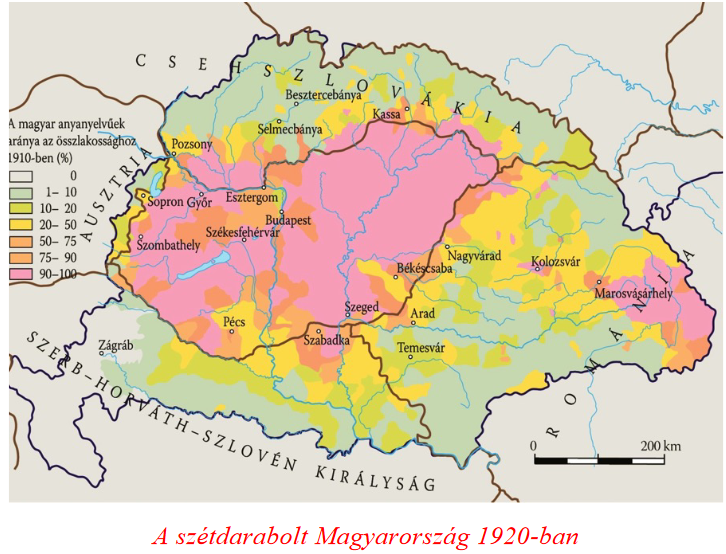

Revision in the Carpathian Basin
The uneasy political situation between the two wars, the feverish search for a place for the old and the new states, and the ripples of the injustices of the Versailles peace system are well known. In the seething Europe, Hungarian domestic politics was also set in motion. The governments of the Horthy era were naturally all anti-Trianon. The speech of István Bethlen in Debrecen in 1927 broke the wall of Hungarian foreign policy. After careful preparation, the prime minister, who has reigned for six years, announced in the city of Cívis that the unjust treaty of Trianon cannot be accepted in its current state.
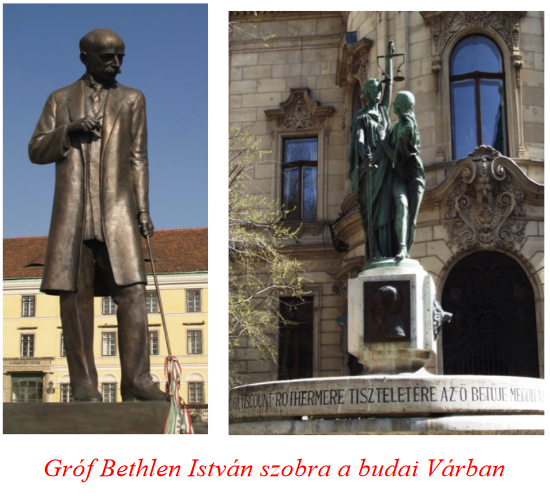

Just in 1927, Lord Rothermere's appeal condemning Trianon was also published. The formation of the Revision League was not without precedent. At the end of the First World War, already in November 1918, the League for the Protection of the Territorial Construction of Hungary, in short the League for the Protection of Territories, was established.
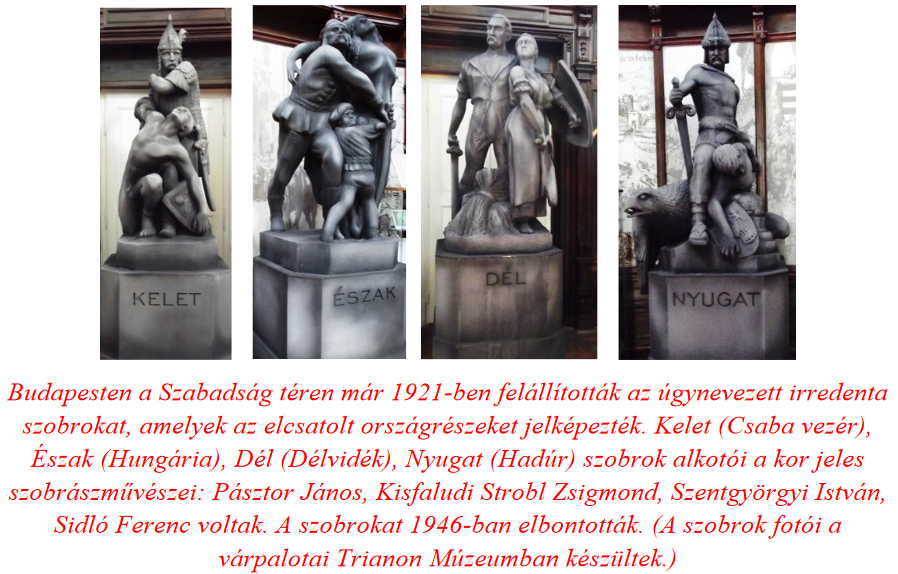
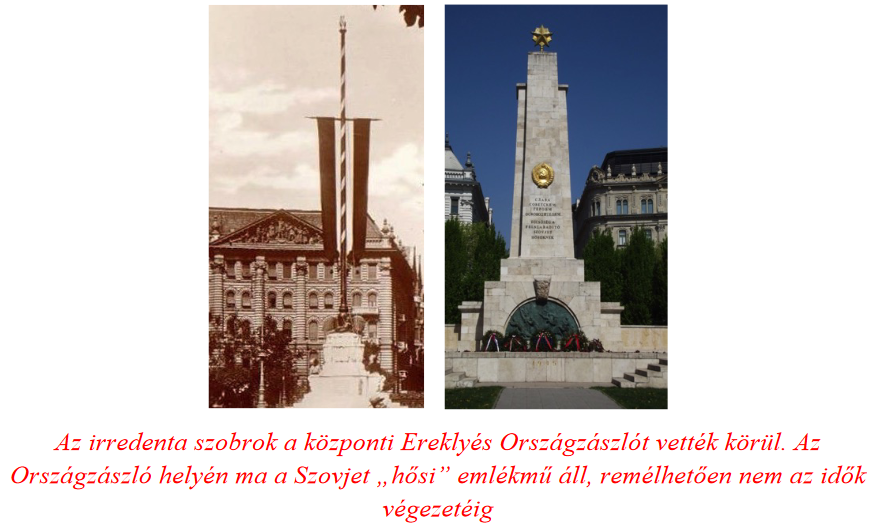
Author: Ferenc Bánhegyi
(Cover image: image: madocsa.hu)
The parts of the series published so far can be read here: 1., 2., 3., 4., 5., 6., 7., 8., 9., 10., 11., 12., 13., 14., 15., 16., 17., 18., 19., 20., 21., 22., 23., 24,, 25., 26., 27., 28., 29/1., 29/2., 30., 31., 32., 33., 34., 35., 36., 37., 38.

